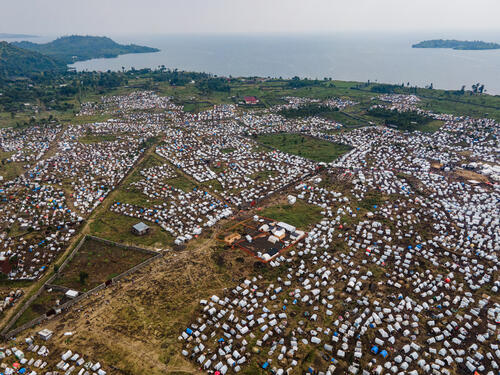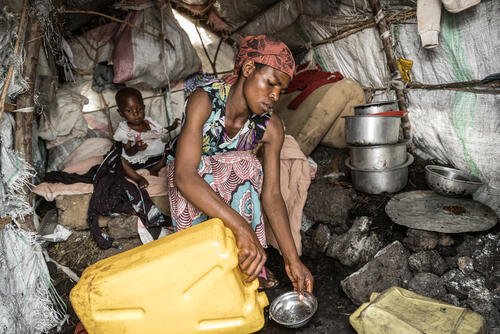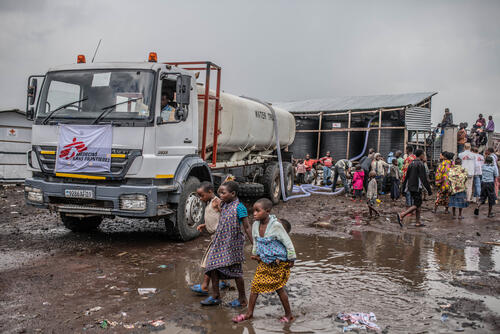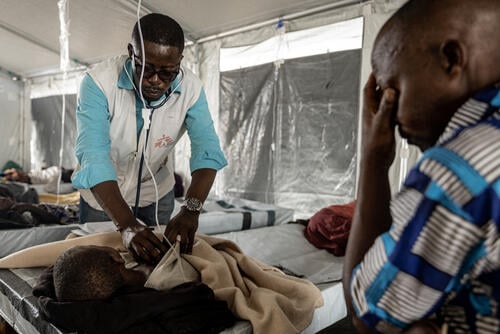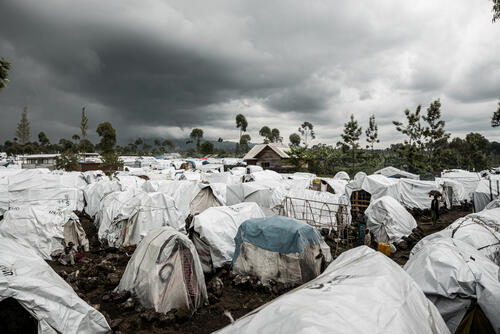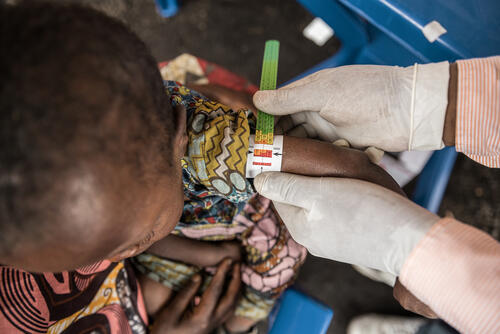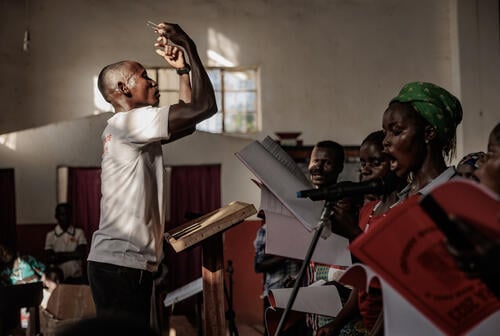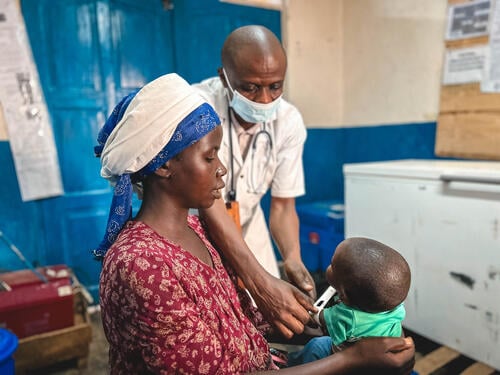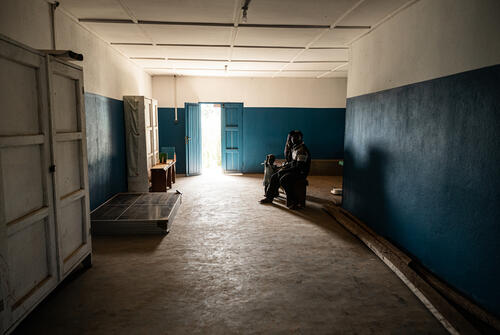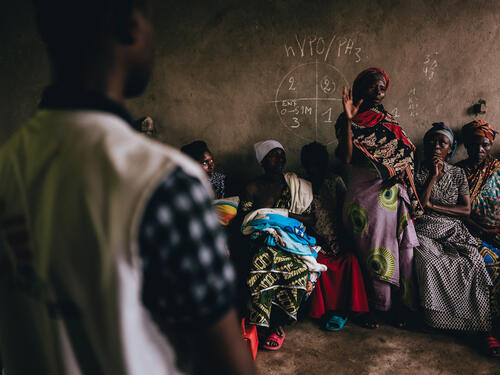In eastern Democratic Republic of Congo (DRC) the humanitarian crisis has reached dramatic heights in 2023, with massive levels of violence and displacement.
In North Kivu, armed clashes linked to the resurgence of the M23 armed group have forced up to one million people to flee their homes.
Often overshadowed, the provinces of Ituri and South Kivu are similarly wracked by relentless violence, causing grave repercussions for many people. While the humanitarian situation is catastrophic, aid remains desperately limited, and people’s needs continue to be overwhelmingly unmet.
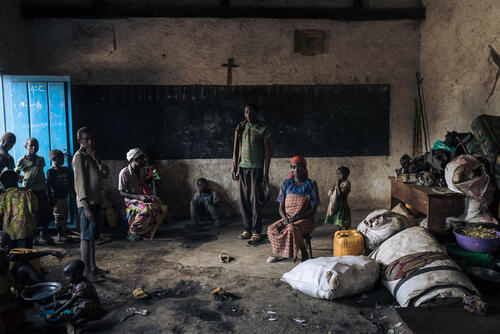
In a grim milestone, the UN announced in late October that the DRC has nearly seven million people who have been displaced, with around five million concentrated in the eastern part of the country – a recordhttps://www.iom.int/news/record-high-displacement-drc-nearly-7-million.
In North Kivu, violence between armed groups – the M23 prominent among them – has triggered constant and massive people movements across Rutshuru, Nyiragongo, and Masisi territories. The escalation of the conflict since October this year has only further increased the humanitarian disaster.
"The current situation in the province is just catastrophic" says Germain Lubango Kabemba, MSF country representative in Goma. "Wherever you look now, the urgency to act is there.”
Meanwhile, violence in North Kivu triggered several waves of displacement of people into South Kivu, notably around Minova and the surrounding villages, where the already fragile hygiene conditions led to an increase in cases of cholera. At the same time the closure of health facilities in North Kivu due to the insecurity also forced people who needed ongoing healthcare south.
One third of the people in Ituri are now displaced as a result of years of conflict. People who are living in such prolonged displacement are hit hard, both mentally and physically.
“Ituri is a region where, over the past 30 years, we have seen a major disinvestment in even the most basic medical services and infrastructure, which makes access to any medical services already very problematic without conflict on top,” says Alira Halidou, MSF head of mission in Ituri.
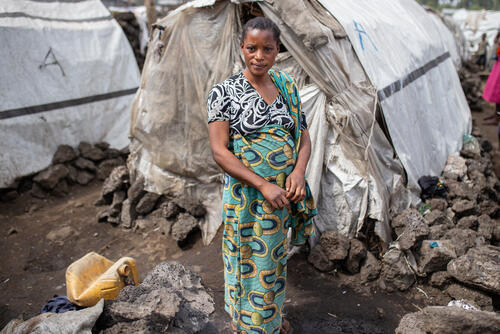
A wake-up call
Everyday Médecins Sans Frontières (MSF) teams witness the impact of the dire living conditions for people who have been displaced by the violence. They live in makeshift shelters without essentials like adequate food, safe drinking water or basic sanitation.
They have become extremely vulnerable to illness and infectious diseases such as cholera and measles. Women are particularly exposed to incidents of sexual violence, which we have seen in extremely high numbers.
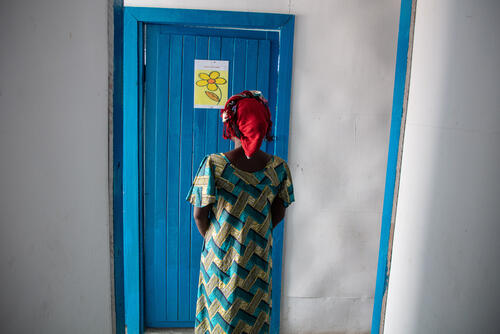
“The humanitarian needs are everywhere and are massive, but as a medical organisation we can only respond to the most pressing and urgent ones,” says Alira Halidou.
“Today, more than ever before, displaced communities are in dire need of concrete and clear action from international humanitarian organisations in the face of this growing emergency.
“We hear, and are confronted with, the communities’ growing pleas for more aid to meet their most basic needs. While the lack of humanitarian presence in many areas of eastern DRC is unfortunately nothing new, the soaring level of needs we see now should act as a wake-up call.”
Despite MSF’s repeated calls for a mobilisation of aid, progress remains insufficient. The crisis gripping the DRC demands an urgent and united international response. It's time to spotlight the people and communities who need support most and ensure that their voices, including those of our patients, are heard and acknowledged.
*Name changed to protect identity.



